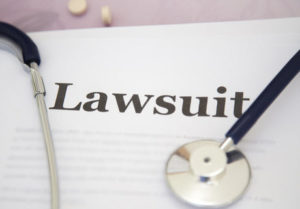
In 2008, Jacqueline Granicz, a 55-year-old woman with a history of depression, called her doctor’s office complaining of excessive mental strain, crying bouts, and gastrointestinal distress. An office assistant informed Granicz’s primary-care physician, Dr. Joseph Chirillo, of the call, and Chirillo decided to change her antidepressant medication and refer her to a gastroenterologist, but did not recommend that she schedule an appointment to see him. The office called Granicz to inform her that she could pick up samples of her new medication and a new prescription, but still no appointment was scheduled. Granicz picked up her new medication, but was found dead the next day after hanging herself in a garage. Her husband, Robert Granicz, filed a medical malpractice lawsuit against her treating physician, alleging that he had breached a duty of care that caused Granicz’s suicide. The suit claimed that doctors can, and should, foresee that failing to treat patients, particularly those with depression, in a timely and proper fashion can put them in harm’s way and result in suicide.
The Court’s Opinion
Suicide is generally considered an act of self-harm, and thus it is difficult to show that another individual caused that act either through negligence or some willful act. In line with this philosophy, the trial court ruled in favor of Dr. Chirillo and dismissed the suit, stating that the doctor “did not have a duty to prevent the unforeseeable suicide.” The appeals court and the Supreme Court of Florida disagreed in part and reversed the trial court’s decision.
While the Supreme Court agreed that under Florida law, Dr. Chirillo did not have a duty to prevent Granicz’s suicide because she was an outpatient. Florida law generally holds that physicians do have a duty to prevent inpatients from harming themselves, as inpatients are generally under the constant care of a physician.
However, the Court also ruled that “the nonexistence of one specific type of duty does not mean that Dr. Chirillo owed the decedent no duty at all…there still existed a statutory duty… to treat the decedent in accordance with the standard of care.” Much of the appeal’s discussion centered on whether or not doctors can predict patient suicides, and one justice pointed to scientific advances suggesting that such prediction is indeed possible. The Court ultimately ruled that whether the suicide was foreseeable is a matter for a jury to decide.
The Supreme Court’s reversal of the trial court’s decision simply means that Robert Granicz may pursue his lawsuit against Dr. Chirillo; the next trial court judge and jury will determine whether Chirillo breached any duties he had to Jacqueline Granicz, and, if so, what the appropriate penalties may be. However, the Supreme Court’s ruling in favor of Granicz suggests that other patients’ families may have legal rights against physicians who fail to treat patients so as to prevent self-harm.
Have You Lost a Loved One Due to a Physician’s Negligence?
If a loved one of yours has taken his or her own life and you believe their death was preventable, a treating physician may be liable. We know that no amount of money will ever take the place of your loved one, but you may be entitled to compensation such as medical expenses and mental pain and suffering. Experienced medical malpractice lawyer John Piccin at the Piccin & Glynn has handled medical malpractice cases for decades, and can help you through this difficult time. Call John at 352-558-8480 for a free consultation to discuss your case today.

